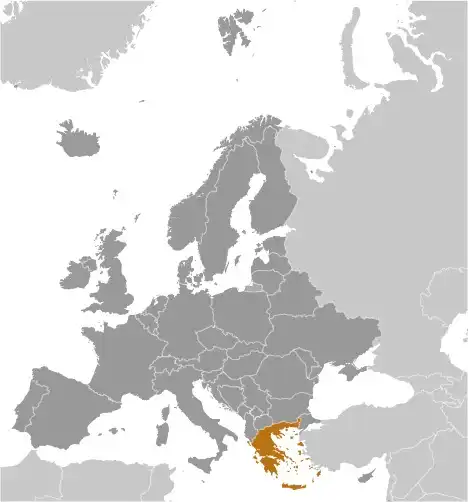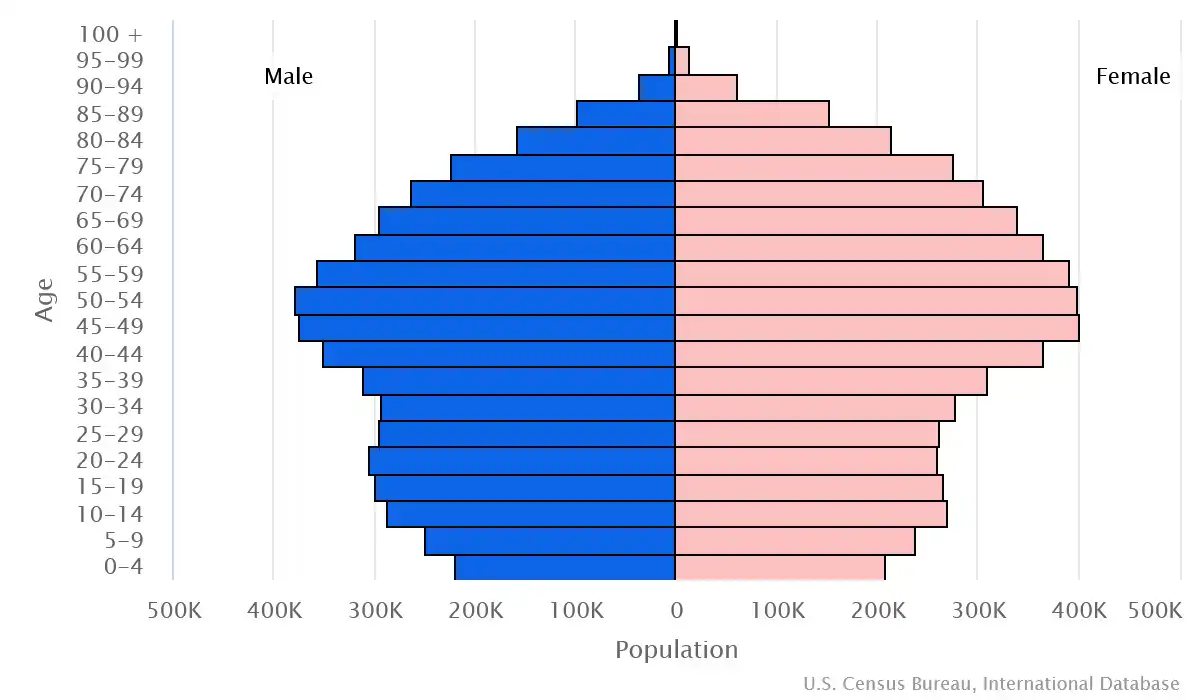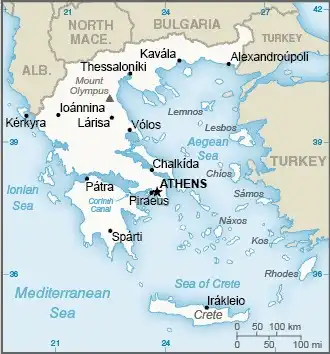
Greece
Veröffentlicht: 18. June 2022 - Letztes Update: 28. February 2025
Country Data Dashboard

Population
10,461,091
Growth: -0.35% (2024 est.)
GDP
$243.498 billion
(2023 est.)
Area
131,957 sq km
| Government type: | parliamentary republic |
| Capital: | Athens |
| Languages: | Greek (official) 99%, other (includes English and French) 1% |
People & Society
Ethnicity (2011 est.)
Religion (2015 est.)
Age structure

Economy
Economic overview
developed EU and eurozone economy; strong post-COVID growth driven by tourism, shipping industry, exports, and foreign investment supported by EU cohesion funds; public debt remains high despite recent budget surplus; challenges from negative household savings, high unemployment, corruption, and competitiveness gaps
Real GDP (purchasing power parity) in Billion $
Real GDP per capita in $
Exports & Imports in billion $
Top 5 Import Partner in 2022 (44%)
Top 5 Import Commodities in 2022
- crude petroleum 🛢️
- natural gas 💨
- refined petroleum ⛽
- garments 👕
- packaged medicine 💊
Top 5 Export Partner in 2022 (44%)
Top 5 Export Commodities in 2022
- refined petroleum ⛽
- packaged medicine 💊
- aluminum 🪙
- natural gas 💨
- plastic products ♻️
Geography
Map

Area
Natural resources
- lignite 🪨
- petroleum 🛢️
- iron ore ⛓️
- bauxite 🪨
- lead 🪙
- zinc 🔩
- nickel 🪙
- magnesite 🏔️
- marble 🪨
- salt 🧂
- hydropower potential 💧⚡
Climate
temperate; mild, wet winters; hot, dry summers
Historical Background Information
Greece won independence from the Ottoman Empire in 1830 and became a kingdom. During the second half of the 19th century and the first half of the 20th century, it gradually added neighboring islands and territories, most with Greek-speaking populations. In World War II, Greece was first invaded by Italy (1940) and subsequently occupied by Germany (1941-44); fighting endured in a protracted civil war between supporters of the king and other anti-communist and communist rebels. The communists were defeated in 1949, and Greece joined NATO in 1952. In 1967, a military coup forced the king to flee the country. The ensuing military dictatorship collapsed in 1974, and Greece abolished the monarchy to become a parliamentary republic.
In 1981, Greece joined the EC (now the EU); it became the 12th member of the European Economic and Monetary Union in 2001. From 2009 until 2019, Greece suffered a severe economic crisis due to nearly a decade of chronic overspending and structural rigidities. Beginning in 2010, Greece entered three bailout agreements -- the first two with the European Commission, the European Central Bank, and the IMF; and the third in 2015 with the European Stability Mechanism -- worth in total about $300 billion. The Greek Government formally exited the third bailout in 2018, and Greece's economy has since improved significantly. In 2022, the country finalized its early repayment to the IMF and graduated on schedule from the EU's enhanced surveillance framework.
In 1981, Greece joined the EC (now the EU); it became the 12th member of the European Economic and Monetary Union in 2001. From 2009 until 2019, Greece suffered a severe economic crisis due to nearly a decade of chronic overspending and structural rigidities. Beginning in 2010, Greece entered three bailout agreements -- the first two with the European Commission, the European Central Bank, and the IMF; and the third in 2015 with the European Stability Mechanism -- worth in total about $300 billion. The Greek Government formally exited the third bailout in 2018, and Greece's economy has since improved significantly. In 2022, the country finalized its early repayment to the IMF and graduated on schedule from the EU's enhanced surveillance framework.
